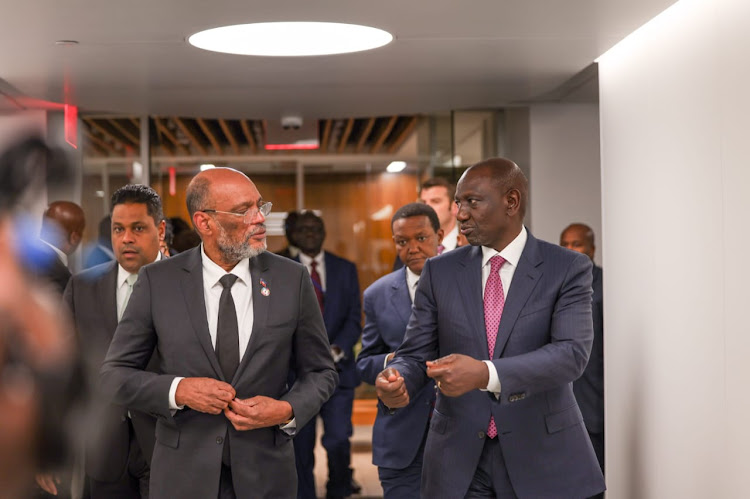
Haiti’s Prime Minister Ariel Henry’s recent visit to Kenya marks a critical effort to revive the stalled plan of deploying 1,000 Kenyan police officers to Haiti to combat the escalating gang violence. This initiative, initially halted by a Kenyan High Court ruling citing constitutional concerns due to the lack of formal agreements between the two nations, is now a step closer to realization following Henry’s discussions with Kenyan President William Ruto.
In Nairobi, the leaders engaged in discussions aimed at finalizing the modalities for bilateral agreements, essential for the deployment’s legality and effectiveness. Despite the court’s decision, which also highlighted the Kenyan National Police Service’s restrictions on foreign deployments, Henry’s trip underlines both countries’ commitment to proceeding with the mission.
Kenya’s willingness to share its police expertise with Haiti, as articulated by President Ruto, is part of a broader international effort, backed by the UN and primarily funded by the US, to address the dire security situation in the Caribbean nation. Haiti, grappling with intensifying gang control—estimated to cover up to 80% of Port-au-Prince—and political instability since President Jovenel Moïse’s assassination, views this mission as a beacon of hope for restoring order and paving the way for promised elections.
Critics, including Kenyan opposition leader Ekuru Aukot and human rights groups, have raised concerns over Kenya’s internal security challenges and the Kenyan police’s record of human rights abuses. Despite these criticisms, both nations proceeded to sign a security deal, potentially overcoming the legal hurdles that have delayed the mission.
The agreement signifies a crucial step towards international collaboration in addressing Haiti’s security crisis, despite the complexities and criticisms surrounding the deployment. As Haiti and Kenya navigate these diplomatic and legal challenges, the world watches closely, hopeful for a resolution that can bring peace to the streets of Port-au-Prince and set a precedent for future international security cooperation.


